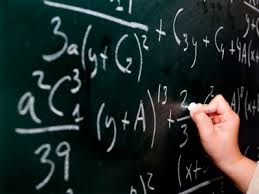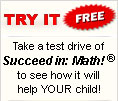How You Can Help Your Child With Dyslexia and Math
Dyslexia and math – also known as dyscalculia. It’s not uncommon, although the surface has barely been scratched with research. Many children have trouble with numbers or math, but not many people know how to overcome it. Just like dyslexia, it’s a learning disability that can alter a child’s future if not handled appropriately.
If you suspect your child has dyscalculia, the best thing to do is address it immediately (take a quick mental assessment with the does my child have dyscalculia test.) Do not let this go, thinking it’s just a phase. A child who can’t differentiate between numbers ultimately means a child will not be able to perform simple math equations. Math is everywhere in this world. Without the simple knowledge of basic math concepts, a child’s options decrease significantly in his/her adult life.
 So what is dyscalculia? Quite simply put, it’s a learning disability with numbers. Numbers may be transposed, or just not recognized. According to Wikipedia, the web definition of dyscalulia is the impaired ability to learn grade-appropriate mathematics. It can range from many mathematical difficulties, but the end result is always the same – if you can’t perform math as an adult, you will not be able to do certain jobs.
So what is dyscalculia? Quite simply put, it’s a learning disability with numbers. Numbers may be transposed, or just not recognized. According to Wikipedia, the web definition of dyscalulia is the impaired ability to learn grade-appropriate mathematics. It can range from many mathematical difficulties, but the end result is always the same – if you can’t perform math as an adult, you will not be able to do certain jobs.
A child with any kind of learning disability needs special attention. Most importantly, show your child patience and understanding. Do not let your child give up or get frustrated. You are your child’s support system. There are ways to overcome dyscalculia, so hope is not lost. Practice and patience is the number 1 thing to remember.
Tutors may be able to help your child with dyslexia and math, and if you can afford it, you should certainly look into it. However, that is not the only way to help your child. There are programs and software games available to students who have special learning needs. Two in particular are the Make Math More Fun Printable Games and the Succeed in Math Software Games. They are both great for helping your child practice math, without realizing they’re practicing.
The Make Math More Fun program has games and worksheets that you download right to your computer. Your child can play the games, but also learn while they do. It’s a fun way for your child to get a grasp on simple math concepts. The Make Math More Fun is for children ages 4-12, and can help your child immensely in the development of math skills. It’s relatively inexpensive (just under $28) and you can use it for as many children as you need.
You can check out Making Math More Fun right here.
The second program I talked about is more online based. It has many different math games that your child can play right on the computer. It’s a great resource for any child who struggles with any type of math, and is also recommended for children with dyscalculia.
You can find out more about the Succeed in Math Software Games right here.
